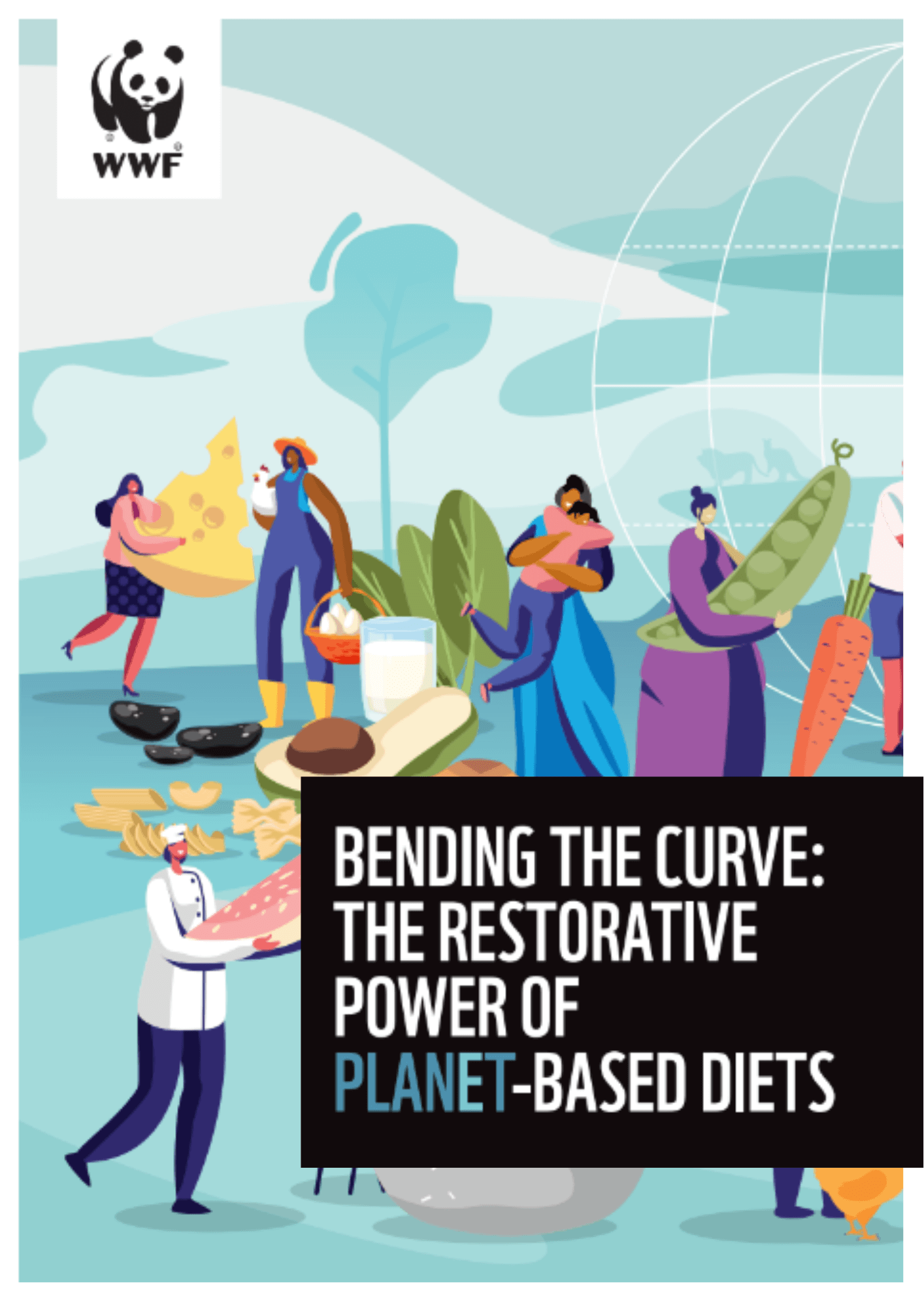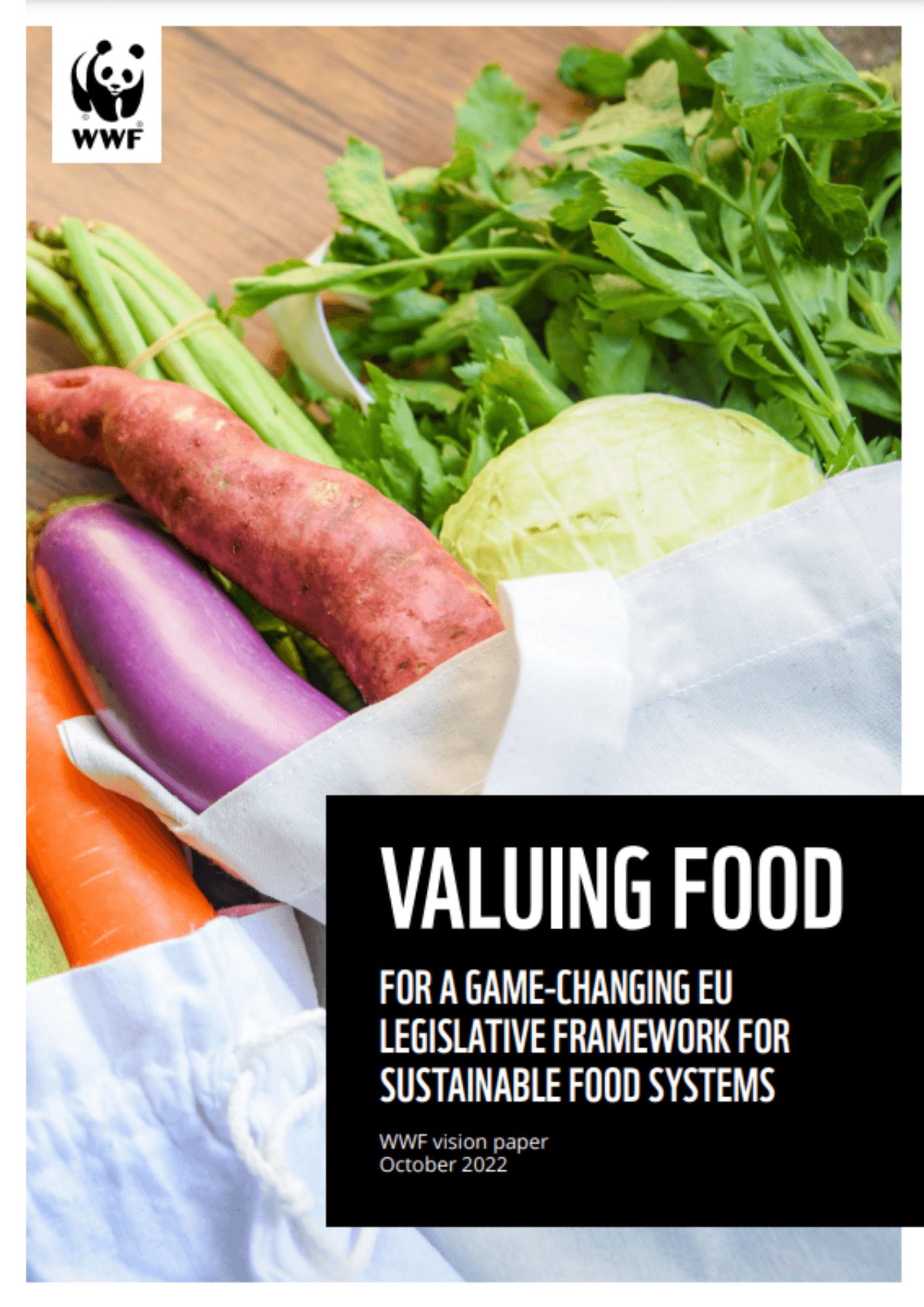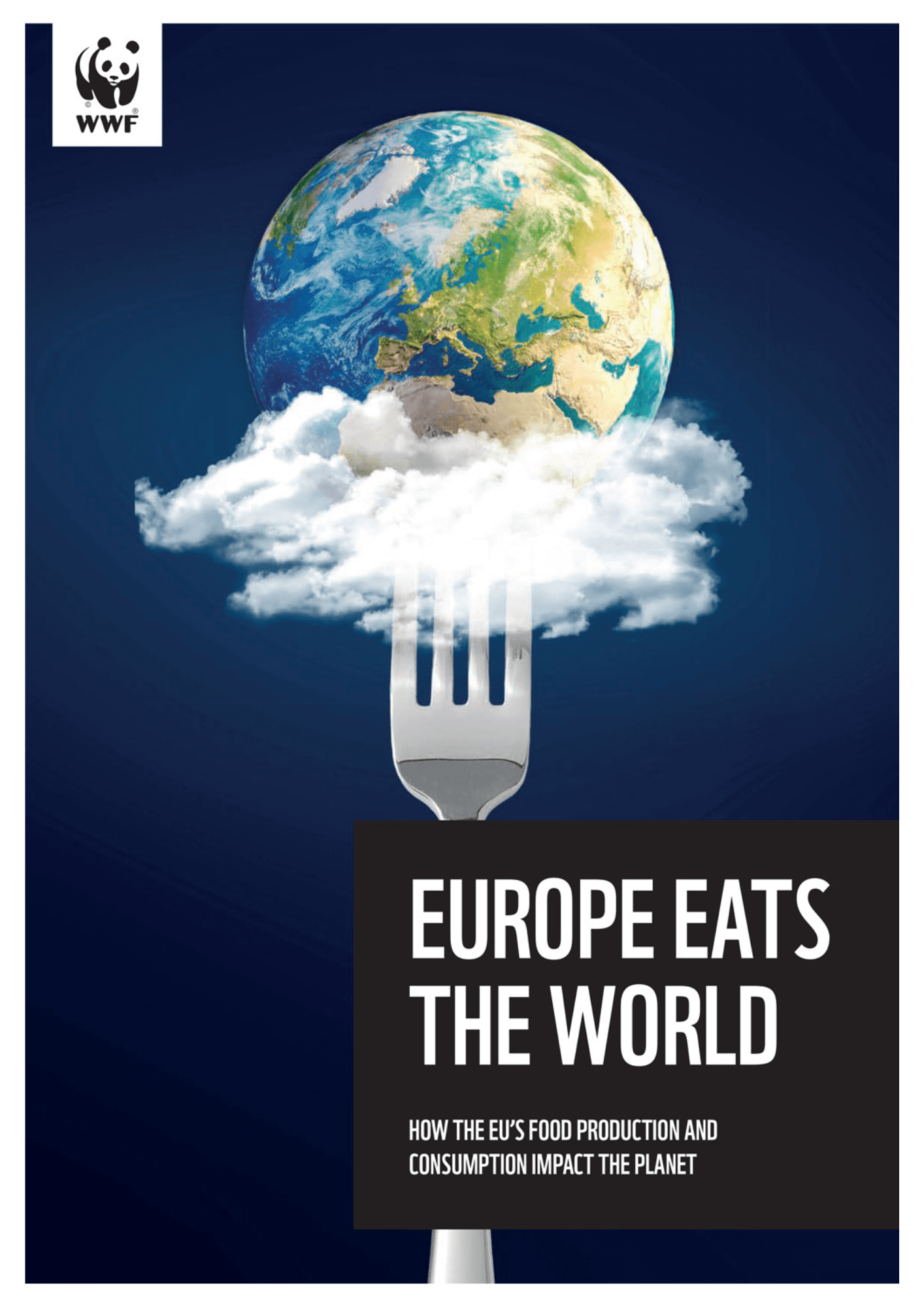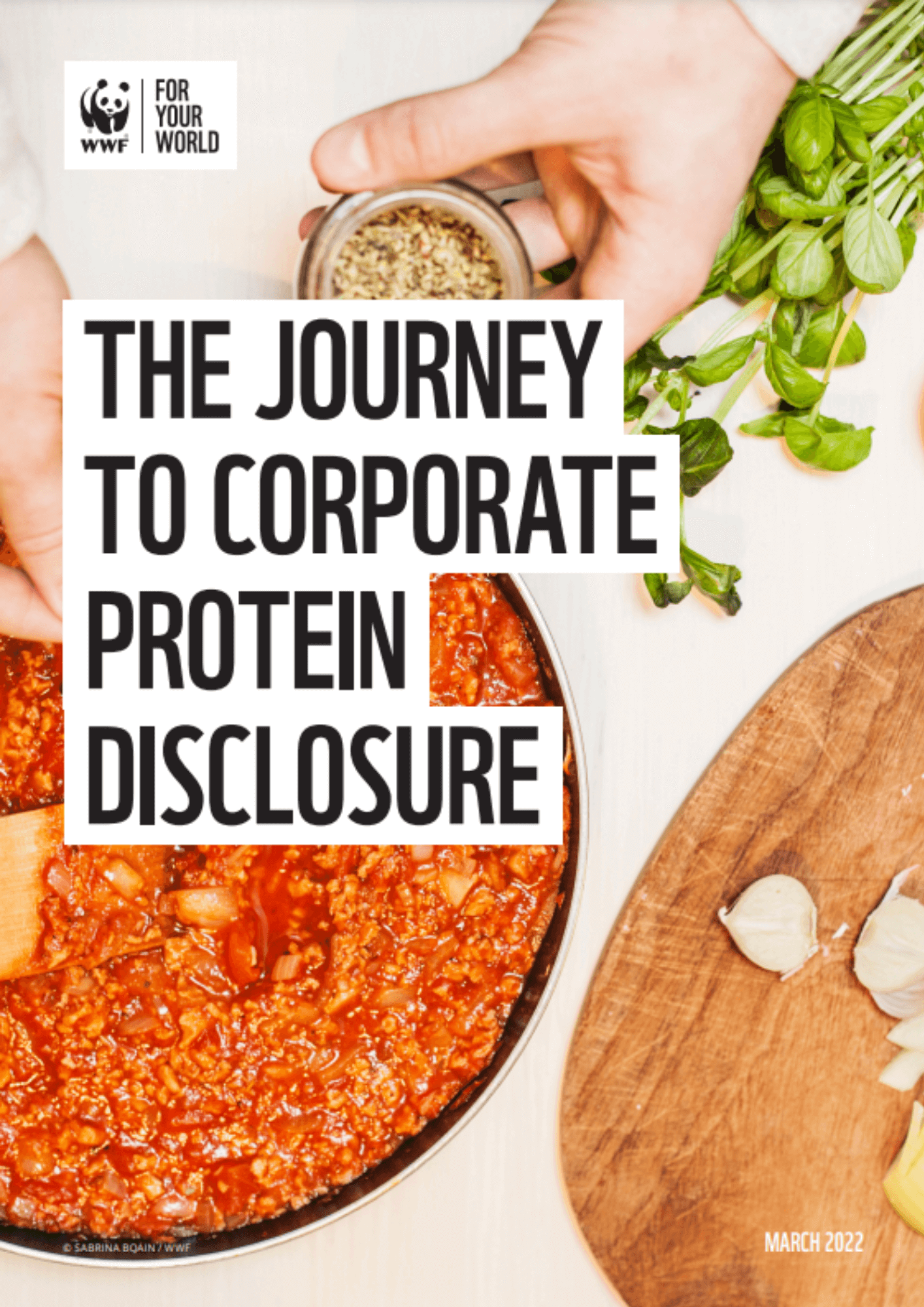sustainable diets
PROMOTE AFFORDABLE, HEALTHY, SUSTAINABLE DIETS

goal
Increased proportion of plant-based foods in the average diet.
Europeans tend to eat more food, and in particular more animal products, than what is healthy for people or the planet. On average, EU citizens eat more than twice as much meat as recommended by health authorities.
What customers choose to eat has the largest impact on their footprint, as most of our food emissions come from processes on the farm or from land use change.
Studies by WWF and the European Consumer Organisation show that Europeans want to eat more sustainably, but face barriers in doing so and need sustainable food choices to become easier. Most find sustainable options are usually more expensive, unavailable, unappealing or unclearly labelled.
RECOMMENDED ACTIONS
Focus marketing on promoting healthy, sustainable diets (e. g. lower-impact, seasonal and local products), inform, nudge and support customers to make choices that are more aligned with the Livewell diet. https://wwfcee.org/sustainable-diet
Inspiration (e.g. recipes and customer communications) and community-level engagement supported by advice on storage, cooking and portions to reduce food waste.
Use ‘nudges’ to change consumer purchasing behaviour (e.g., placing plant-based alternatives near meat; using priority shelf space; promoting plant-based ‘meal boxes’).
Rebalance product pricing so that healthier, more sustainable products become the most affordable options for customers.
Set ambitious targets to increase sales of plant proteins.
Establish a system for measuring sales of animal/plant proteins along with carbon footprint and publicise the plant/ animal proportion of protein sales broken down on an annual basis.
ADVOCACY PRIORITIES
Advocate for mandatory environmental food labelling and mandatory environmental impact reporting by food businesses.
Advocate for multi-sectoral approaches (e.g. cooperation with educational institutions).
EXPLORE THE OTHER PRINCIPLES
resource library
wwf reports and case studies
about wwf
WWF is one of the world’s largest independent conservation organizations, with over 5 million supporters and a global network active in more than 100 countries. WWF’s mission is to stop the degradation of the planet’s natural environment and to build a future in which people live in harmony with nature, by conserving the world’s biological diversity, ensuring that the use of renewable natural resources is sustainable, and promoting the reduction of pollution and wasteful consumption.
As a member of the WWF global network, WWF-CEE exists to promote WWF’s mission across seven countries in Central and Eastern Europe. Member organizations include WWF-Bulgaria, WWF-Hungary, WWF-Romania, WWF-Slovakia, WWF-Ukraine and WWF in Czechia.
























